|
Next Tuesday at approximately 4:00 pm, Pope Francis will touch down at Joint Base Andrews in Prince George's County, Maryland. This Apostolic Journey to the United States of America includes visits to three important American cities: Washington, D.C., New York City, and Philadelphia. I am excited to return next week to the campus of my alma mater, The Catholic University of America, where Pope Francis will celebrate the Mass of Canonization of Junipero Serra on the steps of the Basilica of the National Shrine of the Immaculate Conception. This Mass will make history, as it is the first canonization Mass to take place on U.S. soil and the first papal Mass to take place on a U.S. university campus. As a seminarian, I will join thousands of my brother seminarians and those in religious formation in the Great Upper Church of the National Shrine for the Mass of Canonization. Although details are sparse, it is expected that Pope Francis will be greeted on the front steps of the National Shrine and then proceed down the center aisle before celebrating Mass on the steps of the National Shrine overlooking Catholic University. The Apostolic Journey of Pope Francis has been described as an "encounter," not simply a trip. The secular media has focused on his address to Congress, the security concerns related to the World Meeting of Families in Philadelphia, and the associated merchandise. (I must admit that I'll be on the lookout for some fun Papal Visit trinkets as souvenirs!) I think there is something to be said, however, about this apostolic journey as an "encounter." During an audience with seminarians and novices in July 2013, Pope Francis addressed them with these words, which are certainly applicable to us all: I would like to tell you: come out of yourselves to proclaim the Gospel, but to do this you must come out of yourselves to encounter Jesus. There are two ways out: one towards the encounter with Jesus, towards transcendence; the other towards others in order to proclaim Jesus. These two go hand in hand. If you only take one of them, that is no good! Encountering the Holy Father is a way to both deepen our faith and evangelize. This has been actualized in the "Walk with Francis" movement, which encourages people to join the Holy Father in prayer and service. The Holy Father has encouraged us to join in prayer not only for his Apostolic Journey to the United States, but also that his message of peace, mercy, discipleship, and love might touch the hearts of both believers and non-believers alike. The theme of the Apostolic Journey, "Love is Our Mission," seems to indicate what it is that the Holy Father wishes to convey to us during his first visit to the United States. His words on love and mercy are poignant: May a powerful gust of holiness sweep through all the Americas... We ask the Risen Jesus, Lord of all ages, that the life of our American continent may be rooted ever more deeply in the Gospel it has received; that Christ may be ever more present in the lives of individuals, families, peoples and nations, for the greater glory of God. We pray, too, that this glory may be manifested in the culture of life, brotherhood, solidarity, peace and justice, with a preferential and concrete love for the poor, through the witness of Christians of various confessions and communities, together with believers of other religious traditions, and people of upright conscience and good will. Lord Jesus, we are merely your missionary disciples, your humble co-workers so that your Kingdom may come! We look forward to welcoming you to the United States, Holy Father, and we join in walking with you in prayer and service that we might become witnesses to love and ministers of God's mercy. Pope Francis told the young people gathered at World Youth Day in Rio de Janeiro that "evangelizing means bearing personal witness to the love of God, it is overcoming our selfishness, it is serving by bending down to wash the feet of our brethren, as Jesus did." By serving others and witnessing to the love of God, may we be inspired to encounter the Lord in our sisters and brothers. May this encounter with Pope Francis in the United States inspire us all to answer the Holy Father's call to evangelize. For more information on Pope Francis' Apostolic Journey to the United States, please visit our Papal Visit Portal.
0 Comments
“How beautiful are the footsteps of those who bring Good News” (Romans 10:15-17)! With these words of Isaiah quoted by Saint Paul, Pope Emeritus Benedict XVI warmly greeted the cardinals, bishops, and educators assembled at The Catholic University of America during his April 2008 apostolic visit to the United States. Seven years later, Pope Francis will be following in the footsteps of his predecessors as he brings the Good News to our nation. He is the fourth pontiff to do so. While the good news of Christianity itself hasn’t changed in two thousand years, its Argentine messenger is certainly electrifying the faithful with his personality of joyous humility, simplicity, and compassion evident in the course of his evangelization--specifically renewed calls to holiness and having an unreserved love of neighbor. And yet, it is all too easy to become lost in the so-called “Francis effect” (and attempts to get a papal selfie) and forget to pay attention to the message of His Holiness. A visit by the Vicar of Christ is certainly a rare occasion to be celebrated, but when it comes down to it, are we honoring the man visiting us or the One who authored the Good News in the first place?
I remember first reading the interview published by America magazine conducted by Fr. Antonio Spadaro, S.J. with the newly elected Pope Francis, desiring to hear from the man himself instead of the wild speculations and analysis drawn up by the media. To answer the first question of “Who is Jorge Mario Bergoglio?” the pope candidly responded, “I am a sinner. This is the most accurate definition. It is not a figure of speech, a literary genre. I am a sinner.” I was deeply touched to be able to identify with the earthly head of the Church in this way, thinking, “The Holy Father is a sinner… like me?!” But remaining a sinner is not what we are called to be as Christians. Accepting his election as pontiff, Pope Francis replied, “I am a sinner, but I trust in the infinite mercy and patience of our Lord Jesus Christ, and I accept in a spirit of penance.” These words are truly fitting for the “Servant of the servants of God”: a humble acceptance of God’s will and the call to give witness to His love by carrying one’s cross and serving others in imitation of Christ. We frequently see the Holy Father’s simple and charitable acts of love in global headlines. In a world so unfamiliar with loving one’s neighbor, it’s really no wonder why people find this shocking and out of the ordinary. But each of us, no matter our status, is called to give the same loving witness in our daily lives— love is our mission, after all! Remember that these acts, no matter how small, are an especially meaningful aspect of our Faith: Because Christ is the source of all our good works and is himself the truth of our faith, there is an indissoluble union between truth and love. It is the truth of our faith that guards our charitable works from becoming empty philanthropic endeavors. Our faith makes our charitable works building blocks of the Kingdom of God here on earth, blocks that can be used to build the Church on the cross of Jesus Christ. Our charitable work, on the other hand makes our faith visible and a real part of the world in which we live. The living truth of faith makes our works really good, and our good works reveal a true and living faith. (To see the full text, click here.) His Holiness is certainly aware that the eyes of the world are fixated upon his every deed. Instead of accepting the praise and lauds, he quietly continues to make each an opportunity for evangelization in the hopes of inspiring others to begin to tend to their neighbors. When Pope Francis arrives in the United States next month, remember to take the time to pray for him as he spreads the Good News, that God may grant him the strength, courage, and wisdom needed to touch hearts and that our Lady may grace him with her continued protection. Especially take the time to worship and adore the Author of Love who perpetually resides in the tabernacle of your local church— drawing near to Him requires no special security clearance, rank, or ticket, simply an open heart and a willingness to listen. Finally, pray that once Shepherd One (the name for the Air Italia plane the pope flies in) has departed for Rome, the seeds planted by His Holiness will grow to inspire us to continue the mission of love which has been entrusted to each of us. For more information on Pope Francis' Apostolic Journey to the U.S., please click here. “…we even boast of our afflictions, knowing that affliction produces endurance, and endurance, proven character, and proven character, hope, and hope does not disappoint, because the love of God has been poured out into our hearts through the Holy Spirit that has been given to us.”
Romans 5:3-5 A few weeks ago, during our celebration of the Solemnity of the Most Holy Trinity, this portion of St. Paul’s letter to the Romans was read to faithful Catholics throughout the world. I had the privilege of attending a bilingual Mass that weekend with my girlfriend, Kara, in a high school gymnasium. The different setting, unfamiliar language, and unusually large number of altar servers hardly crossed my mind as we participated in Mass at Most Holy Trinity Parish, on this, their solemnity. It was a beautiful liturgy to say the least! What struck Kara and me most about our experience, however, were these lines from the second reading: How many of us know someone who is afflicted? We all have family members, friends or colleagues that are struggling with cancer, unemployment, depression, etc. In the daily news - local, national and international - we hear about gun violence, war, natural disaster, and famine. Even more simplistically, we each have ‘good days’ and ‘bad days.’ St. Paul reminds us that affliction is not something to run from because ultimately, we “boast in hope of the Glory of God” (Romans 5:2). His ‘flow chart of hope’ is a reassuring message of what true faithfulness yields and how God makes His love present to each of us in our struggles. The alternatives to hope (sin, despair, discouragement, impatience, fear, anxiety, guilt…)_ when left unchecked, are a rejection of God’s invitation to deeper communion with Him. Very basically, this reading offers us a roadmap to understand how affliction does not have the final word; hope does! Pope Benedict XVI’s homily at Nationals Stadium during his 2008 Apostolic Visit to the United States speaks to this point: “It is a prayer of unfailing hope, but also one of patient endurance and, often, accompanied by suffering for the truth. Through this prayer, we share in the mystery of Christ’s own weakness and suffering, while trusting firmly in the victory of his Cross.” We are able to endure our own afflictions because of the hope promised to us by God. Pain, suffering, and struggle are not pleasant, especially when they are affecting someone we know and love. As people of faith, though, we believe God is with us, united in our affliction and made present to us in the love we experience. This faith, this hope, and this love, offer us momentary comfort and strength as we journey to the ultimate glory of complete communion with God. We have a common call to share this hope with those around us, especially with those who find it difficult to endure in times of struggle. This simple reminder of the universality of the Church also reminds us that through prayer, “we become capable of the great hope, and thus we become ministers of hope for others” (Spe Salvi, 34). And so, as we are confronted with affliction, our prayer should be one of hope. As others struggle with affliction, our response should be one of hope. And as we begin to question why affliction affects our lives, we must remember that affliction yields hope; hope in the love of God. “Hope, O my soul, hope. You know neither the day nor the hour. Watch carefully, for everything passes quickly, even though your impatience makes doubtful what is certain, and turns a very short time into a long one. Dream that the more you struggle, the more you prove the love that you bear your God, and the more you will rejoice one day with your Beloved, in a happiness and rapture that can never end.” St. Teresa of Avila, The Exclamations of the Soul to God, 15:3. Jonathan Jerome is the Director of Catholic Campus Ministry at the University of Pittsburgh Johnstown. Editor's Note: This post was originally published on June 13, 2013 In preparation for Pope Francis’ visit to the United States in September, let us take the time to consider the theme of his trip, “Love is Our Mission.” To me, this phrase is designed to be purposeful and direct. Our mission and purpose as Catholics is to go into the world and be apostles to our neighbors and love is what we are called to do for all of our neighbors. As Catholics, we are called to love one another, but many people in today’s society have misunderstood the true meaning of love. To remind ourselves what love really is, the well-known passage from 1 Corinthians can help: “Love is patient, love is kind and is not jealous; love does not brag and is not arrogant, does not act unbecomingly; it does not seek its own, is not provoked, does not take into account a wrong suffered, does not rejoice in unrighteousness, but rejoices with the truth; bears all things, believes all things, hopes all things, endures all things.” (1 Corinthians 13: 4-7) In these next four months before Pope Francis comes to Philadelphia, New York City, and Washington, DC, let us try to emulate his mission of love in our lives. In the Jesuit elementary school where I also teach Religion, we have started planning how we will ready our students for the coming of Pope Francis to Washington, DC. It made me realize how we adults in the faith also need to be ready! There are many ways to prepare our hearts for love and the anticipation of the visit of our Holy Father. Daily Prayer, regular celebration at Mass, and Confession are constant reminders of God’s love for us will help strengthen our own bonds with Him, while we wait in anticipation for the visit of the Holy Father, keeping in mind that “Love is Our Mission.” Between now and September, information about the visit will be spread throughout the media, and despite this abundance of information, we must still remember the importance of readying our hearts. Now is the time to invite people to open up their hearts to love, hope, and peace in the world. In this digital age, we can get everyone involved! Did you know that Pope Francis has a Twitter account? Follow him at @Pontifex for his inspirational tweets about love and our mission to spread it. For more information about Pope Francis and to learn more about how you can be a loving apostle to your neighbor, visit the Catholic Apostolate Center’s Pope Francis Portal! Krissy Kirby is a teacher in the Archdiocese of Washington, D.C. Check out Catholic Apostolate Center Director Fr. Frank Donio, S.A.C. as he discusses Pope Francis on Twitter! "The apostolate of the laity derives from their Christian vocation and the Church can never be without it."
These words come from the opening lines of the “Decree on the Apostolate of the Laity” (Apostolicam Actuositatem), one of the nine decrees that come out of the Second Vatican Council. They are quite moving and powerful documents that were handed down to us by the council fathers. This particular document on the laity shows that the Church is dependent on the apostolate of all people. But the term “apostolate” seems so daunting; clearly the word is rooted in the idea of being an apostle. I tend to think back to the Twelve Apostles, which creates a certain amount of anxiety. How can I even think about living up to the great examples of these twelve? Yet they are our example, and our apostleship is essential to the life of the Church. In the Church we tend to use the word apostle quite a bit and in many different ways. It appears in terms such as: apostolic, apostolate, and apostleship. To find a secular answer, I looked up the word “apostle” in a Merriam-Webster dictionary. In using a dictionary, my hope was that I might come to a better understanding of what it means to be an apostle. The first definition that I came across for apostle was "one sent on a mission." This first meaning really helps expand the idea of the New Evangelization in simple terms. The discovery of this definition led me to formulate the following question: "What is our mission as baptized Catholics?" This is a very important question that has been the subject of major debate. A simple answer is that we are called to go out into the world around us and proclaim the Good News of our Lord, Jesus Christ. How this is accomplished is a decision that must be made by each one of us. We must find our own niche in the greater mission of Christ. We have been given a divine mission that we must go out and complete. An interesting dilemma of this universal apostolic call is that for some reason people tend to shy away from it. I think that people tend to think that they are not worthy of such a calling or that they are not holy enough. Nothing could be further from the truth. We have all been given the necessary gifts from God to be able to be an apostle. These gifts are not always automatically known to us. Because of this, it is essential that we go out into the world and discover what our God-given talents are. Once we have become aware of our gifts, the task at hand becomes more manageable and attainable. Personally, I have found that being an apostle in the world today can be quite difficult. Through my active search and prayer to recognize the gifts and talents God has given me, I have discovered that I am someone who is easy to talk to. In response to this realization, I make myself available for people, especially my close friends, and I make sure that I both listen and give general advice when necessary. Doing this, however, can be difficult because there are many instances when time is limited, and I need to make a decision about what to put on hold. This can be difficult, so I stop to think about the things on my agenda versus the needs of the person seeking my counsel. Taking this time to reflect makes the decision quite clear. I developed a series of questions that has helped me in this process. I’ve found it very beneficial to go over them every now and again, particularly during the Lenten season. The questions are: Do I understand what it means to be a true apostle of Christ? Do I have an understanding of my mission at this current time in my life? Am I making decisions that help in my mission? Do I understand the gifts that God has given me to fulfill my mission? Do I thank God for these gifts and abilities? My hope is that you find these questions as helpful as I have. Mary, Queen of the Apostles, pray for us! Pat Fricchione is the Research & Production Associate for the Catholic Apostolate Center. Editor's Note: This post was originally published on March 27, 2012. “…we even boast of our afflictions, knowing that affliction produces endurance, and endurance, proven character, and proven character, hope, and hope does not disappoint, because the love of God has been poured out into our hearts through the Holy Spirit that has been given to us.” ~Romans 5:3-5
A few weeks ago, during our celebration of the Solemnity of the Most Holy Trinity, this portion of St. Paul’s letter to the Romans was read to faithful Catholics throughout the world. I had the privilege of attending a bilingual Mass that weekend with my girlfriend, Kara, in a high school gymnasium. The different setting, unfamiliar language, and unusually large number of altar servers hardly crossed my mind as we participated in Mass at Most Holy Trinity Parish, on this, their solemnity. It was a beautiful liturgy to say the least! What struck Kara and me most about our experience, however, were these lines from the second reading: How many of us know someone who is afflicted? We all have family members, friends or colleagues that are struggling with cancer, unemployment, depression, etc. In the daily news - local, national and international - we hear about gun violence, war, natural disaster, and famine. Even more simplistically, we each have ‘good days’ and ‘bad days.’ St. Paul reminds us that affliction is not something to run from because ultimately, we “boast in hope of the Glory of God” (Romans 5:2). His ‘flow chart of hope’ is a reassuring message of what true faithfulness yields and how God makes His love present to each of us in our struggles. The alternatives to hope (sin, despair, discouragement, impatience, fear, anxiety, guilt…)_ when left unchecked, are a rejection of God’s invitation to deeper communion with Him. Very basically, this reading offers us a roadmap to understand how affliction does not have the final word; hope does! Pope Benedict XVI’s homily at Nationals Stadium during his 2008 Apostolic Visit to the United States speaks to this point: “It is a prayer of unfailing hope, but also one of patient endurance and, often, accompanied by suffering for the truth. Through this prayer, we share in the mystery of Christ’s own weakness and suffering, while trusting firmly in the victory of his Cross.” We are able to endure our own afflictions because of the hope promised to us by God. Pain, suffering, and struggle are not pleasant, especially when they are affecting someone we know and love. As people of faith, though, we believe God is with us, united in our affliction and made present to us in the love we experience. This faith, this hope, and this love, offer us momentary comfort and strength as we journey to the ultimate glory of complete communion with God. We have a common call to share this hope with those around us, especially with those who find it difficult to endure in times of struggle. This simple reminder of the universality of the Church also reminds us that through prayer, “we become capable of the great hope, and thus we become ministers of hope for others” (Spe Salvi, 34). And so, as we are confronted with affliction, our prayer should be one of hope. As others struggle with affliction, our response should be one of hope. And as we begin to question why affliction affects our lives, we must remember that affliction yields hope; hope in the love of God. “Hope, O my soul, hope. You know neither the day nor the hour. Watch carefully, for everything passes quickly, even though your impatience makes doubtful what is certain, and turns a very short time into a long one. Dream that the more you struggle, the more you prove the love that you bear your God, and the more you will rejoice one day with your Beloved, in a happiness and rapture that can never end.” St. Teresa of Avila, The Exclamations of the Soul to God, 15:3. Jonathan Jerome is the Director of Catholic Campus Ministry at the University of Pittsburgh Johnstown. |
Details
Archives
July 2024
Categories
All
|
About |
Media |
© COPYRIGHT 2024 | ALL RIGHTS RESERVED

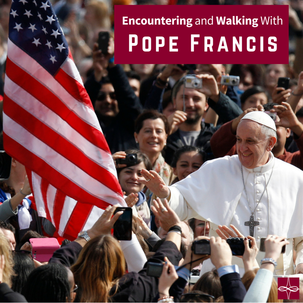

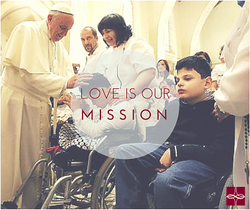

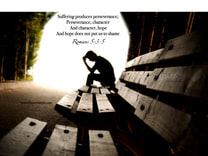
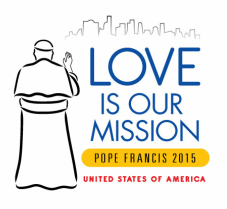

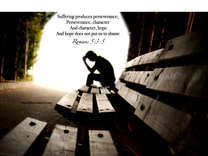
 RSS Feed
RSS Feed